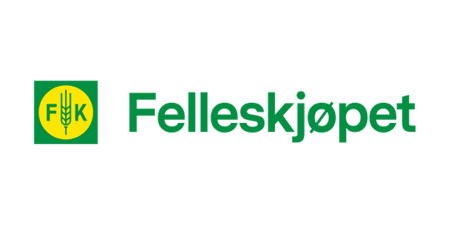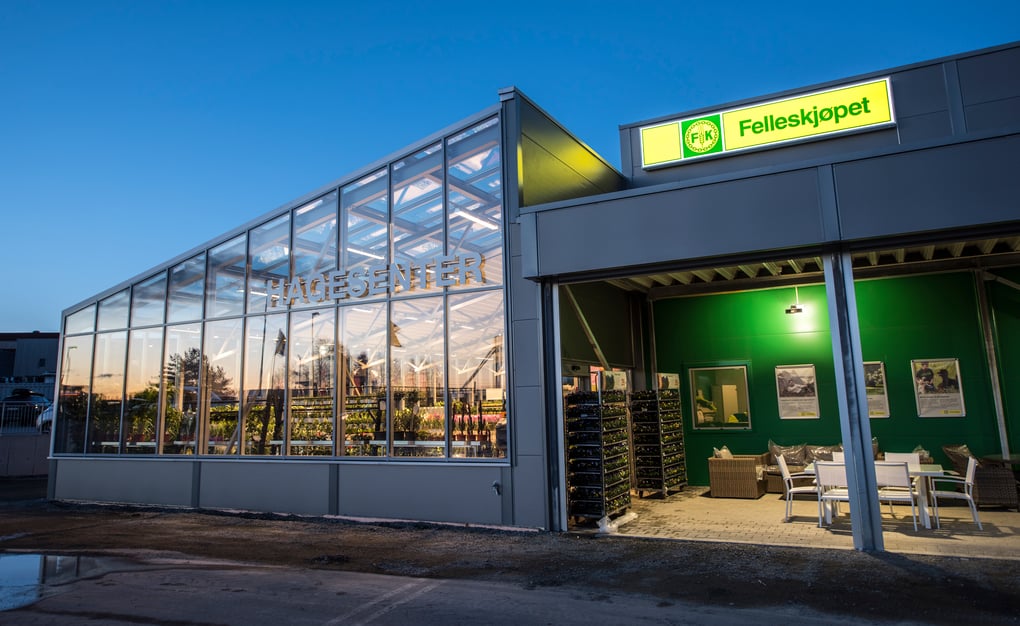
Client:Felleskjøpet Agri
Industry:Banking and Financial Services
Region:Europe
Empowering Employees Means Better Business for Felleskjøpet Agri

20
processes automated and delivered within 24 months
1 week
is what it took to automate invoice processing, from design to delivery
50%
reduction in price discrepancies
50%
reduction in repetitive tasks for some employees
Client Overview
Felleskjøpet Agri is the biggest supplier of technology and equipment to Norwegian agriculture. They have around 100 stores serving farmers and consumers in Norway. The business comprises real estate, bread and baked goods, as well as equipment for parks, facilities and pets, and there is also a subsidiary in Sweden (Granngården). It is a cooperative that is owned by 44,000 farmers across Norway, currently employs 3641 staff, and had a turnover of NOK 16.2 billion in 2019.
Partner

Felleskjøpet Agri deploys RPA to remove low-value, repetitive tasks as part of a continuous program of business improvement to meet challenging market conditions.
There are many reasons for organizations to embrace robotic process automation (RPA). For Felleskjøpet Agri, its automation journey began by realizing the company could free staff from many repetitive tasks. The company teamed with RPA specialist TietoEVRY and UiPath to create automated and efficient business processes. It soon discovered that empowering employees can help improve business operations and customer service.
Like much of the agriculture sector across Europe and worldwide, Norwegian farmers have faced tough economic conditions. The recent COVID-19 pandemic has added to the uncertainty and puts focus on efficiency and cost-effectiveness. This is equally true for an agriculture technology provider like Felleskjøpet Agri, especially when it is owned by the farmers it serves.
RPA removes manual data processing that can be up to 50% of an employee’s time
The adoption of RPA characterizes this drive for Continuous Improvement (CI) within the company. In March 2018, Felleskjøpet Agri began working with consultancy TietoEVRY, to automate many of the company’s time-consuming and repetitive processes.
Turi Nygaard Bakken, RPA program manager at Felleskjøpet Agri, explains: “We have many examples of really repetitive work that just have to be done. The tasks have to be completed but it’s monotonous and boring."
RPA can make our processes more efficient, which equates to a better service to our customers.
Turi Nygaard Bakken • RPA program manager, Felleskjøpet Agri
Invoice-processing is an excellent example. The logistics department receives tens of thousands of invoices every year and processing them through the system was heavily manual, time intensive and required a lot of resources. Developed and delivered within a week, a robot now handles the entire task with virtually no human input.
Felleskjøpet Agri has quickly understood that RPA allows employees to devote much more of their time to activities that deliver real benefit for the company. The key has not just been in time saved but the business improvements that have been made possible.
“Research into our RPA implementation found that our staff received significant benefit when repetitive tasks were removed. In one case, an employee reported that automation removed 50% of her tasks allowing her to concentrate on the more interesting and valuable parts of her role,” says Turi.
This is an outcome that the master data department has also experienced. Heidi Fareleira, Team Leader for Master Data at Felleskjøpet Agri comments: “We have numerous time-consuming, low value tasks. Doing them manually could, at times, lead to a backlog and increased overtime during busy periods.
Using RPA, we’ve been able to improve how we handle our workloads. And if there are any issues, we can solve them much faster than before, which means we can deliver better service to our internal customers.
Heidi Fareleira • Team Leader for Master Data, Felleskjøpet Agri
Improving customer experience for the Master Data department
The master data department is one of the most important within Felleskjøpet Agri. It controls and manages all the master data across all the company’s items, from tractors to barns to spare parts to animal food. All other departments within the company rely on the department to provide up-to-date and accurate information.
Checking and ensuring the quality of data such as part names, part numbers and pricing is a never-ending activity. However, many of the tasks are simple, repetitive, and ideal for automation.
Heidi comments: “We knew that automating mundane processes would give us more time to serve other departments. More importantly, it helped ensure that we’re always delivering quality data. We’ve been able to reduce the workloads for our staff and, consequently, get rid of the backlogs that build up when busy. Our internal customers are happy because we can solve their cases much quicker.”
Dealing with price discrepancies is one of the most complex processes that have been automated within the department. When Felleskjøpet Agri orders an item, the price charged by the vendor must match the price in the order. Any mismatches end up in a report in the system, and if there are discrepancies, these have to be corrected by the vendor.
After our system spotted the price discrepancies, someone had to inform the vendor and follow up every case. It used to take 12 hours each week to handle manually, but this is now resolved in minutes using a robot—with a significant increase in quality.
“Since going live in 2018, we’ve seen price discrepancies reduced by more than 50%,” says Heidi.
Selecting the right processes
Felleskjøpet Agri set out with a target of automating 20 processes within three years and reached this total with a year to spare, having successfully automated processes across the company and its subsidiaries. Through a communications program, Turi has been able to engage people throughout the organization.
The processes that have proved most successful have been those identified by people in the business. They see how automation can solve their day-to-day problems. Our experience is that people are very happy when automations are delivered.
Turi Nygaard Bakken • RPA program manager, Felleskjøpet Agri
For example, the CEO of Norgro, a subsidiary of Felleskjøpet Agri, knew of the RPA team and approached them with a business challenge. At the height of the COVID-19 pandemic, uncertainty caused instability within currencies. Currencies would continually change, making it difficult to know the precise exchange rates when buying or selling abroad. Working closely together, they could quickly develop a robot that continually checks and updates currency exchange rates. The company now knows exactly how much it is spending when purchasing items.
At the Swedish subsidiary Granngården, the interest in RPA is also high. One process has been implemented so far, and a robot runs every evening to register new business customers into the company systems. When the employees return to work the next day, the robot has registered everything and automatically sent a confirmation email.
Benefiting from Robotics-as-a-Service
Part of the success of the RPA program at Felleskjøpet Agri is the relationship between the company and TietoEVRY. They have created a strategic partnership where the specialist consultancy provides Robotics-as-a-Service. Under the partnership, TietoEVRY is responsible for designing, developing, and delivering robots as well as maintaining automations on Felleskjøpet Agri servers.
This approach allows the company to concentrate on identifying and building the business case for processes while the TietoEvry takes care of most of the technical aspects.
Turi believes that Robotic-as-a-Service is an ideal approach for the organization: “By basing the contract on services rather than software, we’re able to keep abreast of the latest automation capabilities.
The partnership between TietoEVRY and UiPath means we can take advantage of the latest RPA developments as our business requires.
Turi Nygaard Bakken • RPA program manager at Felleskjøpet Agri
Related case studies
Ready for your own case study?
Speak to our team of knowledgeable experts and learn how you can benefit from RPA.






